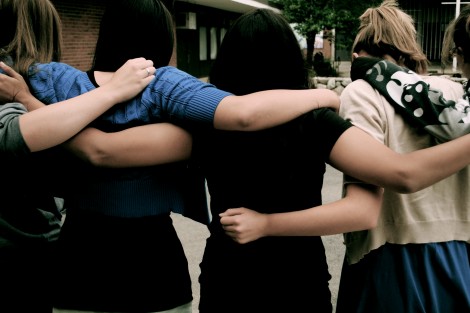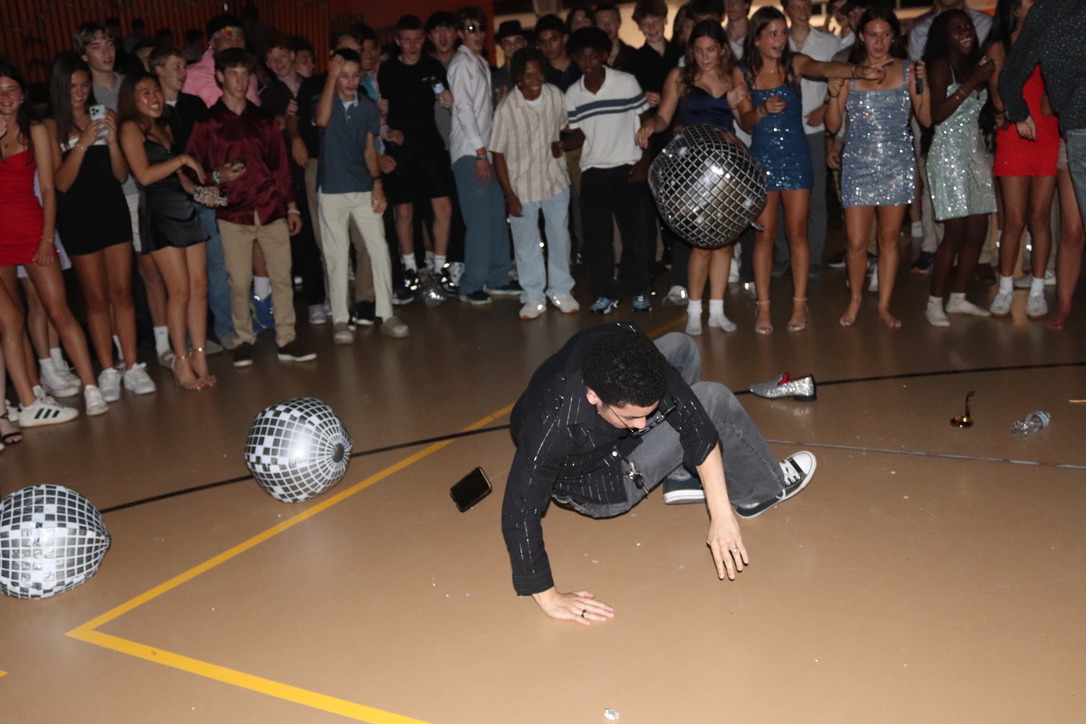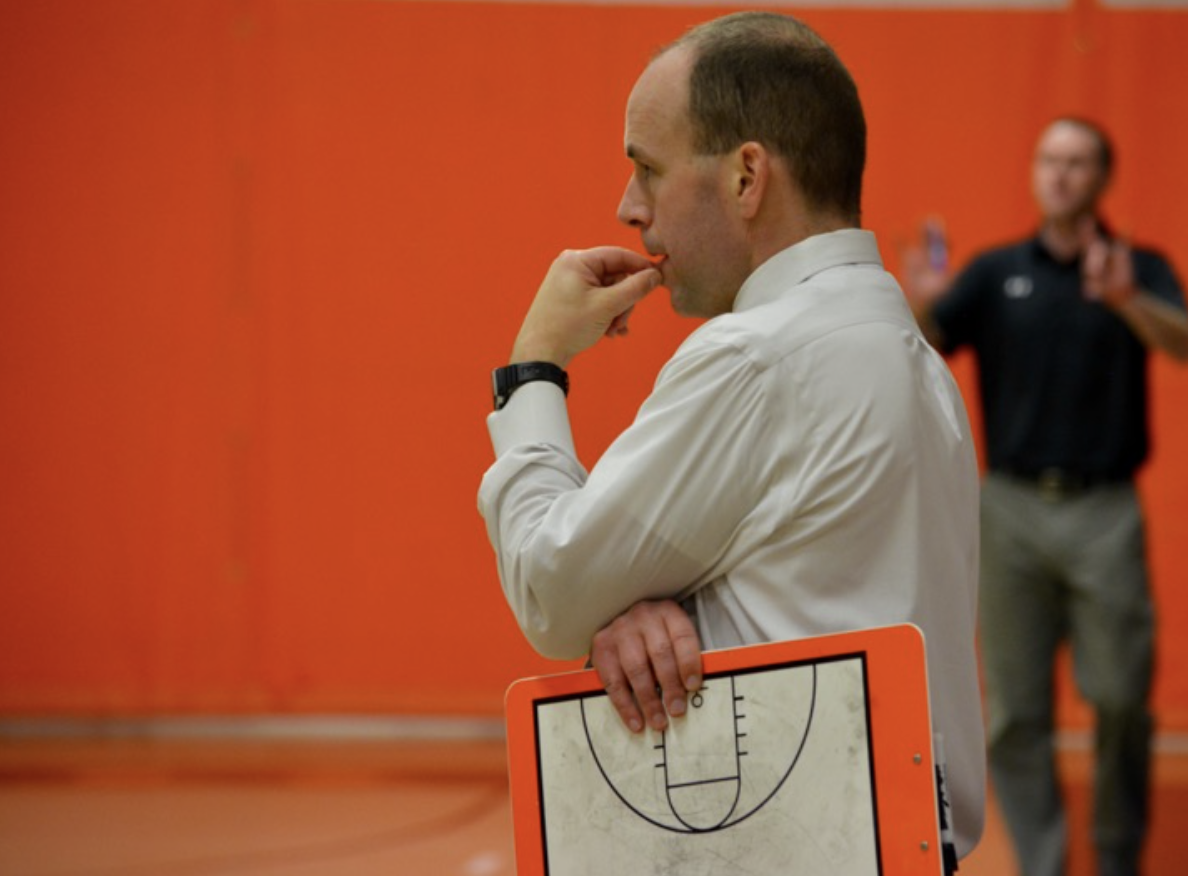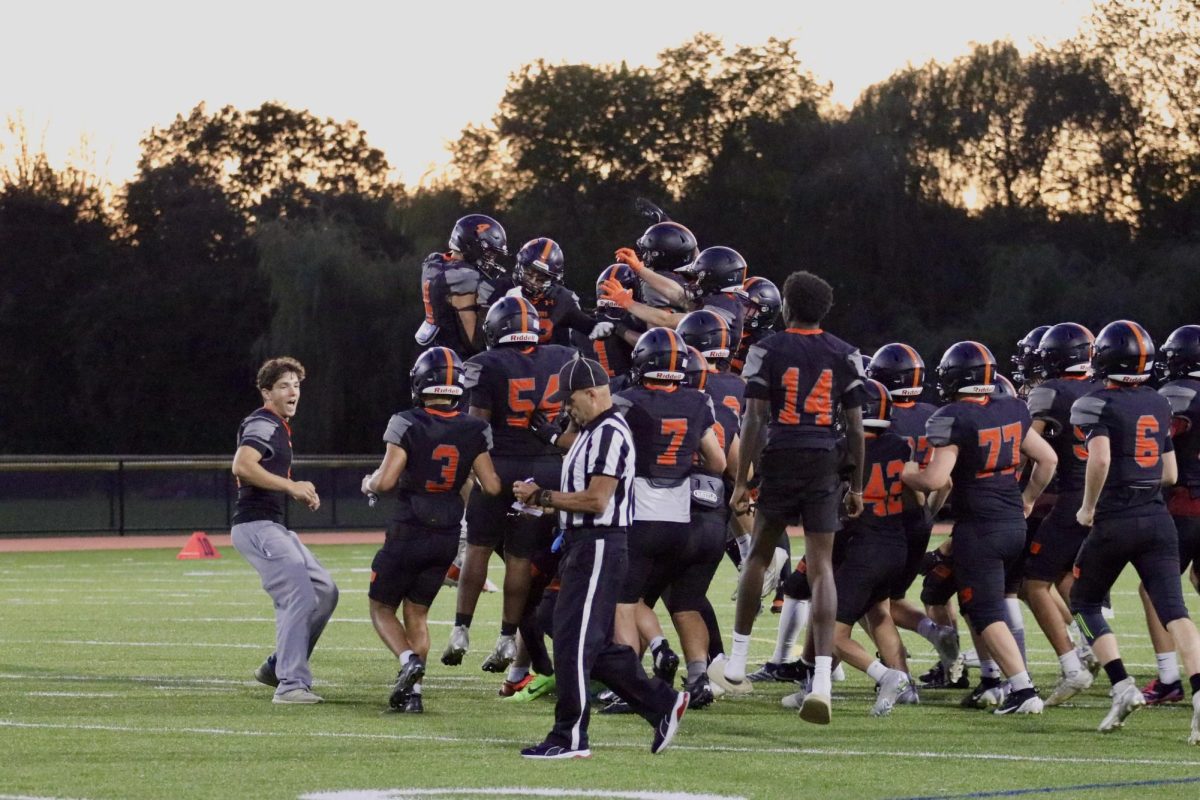
Several months ago, a survey was distributed to almost all of the teachers and administrators at Wayland High School. Out of at least 130 teachers and administrators, only twenty-seven responded. I find this turn out kind of sad. Sexism affects everyone. People should have invested their time into this.
The survey questioned staff members about their opinions on sexism at the high school. Out of the twenty-seven respondents, twenty said they do not believe that the faculty at Wayland High School shows preference toward one gender over another. One person, a female, was undecided. On the other hand, sixteen out of twenty-seven teachers and administrators agreed that there is a gender bias among students.
Despite the fact that 51% of the general population is female, manifestations of sexism are ignored. Daniel Gavin, a history teacher at WHS, believes that sexism is a problem everywhere. Gavin reviewed the survey results with me.
“It is here at Wayland despite the numbers in the survey,” he said. “This is a microcosm of the real world.”
“I was at a basketball game and cheerleaders were blowing kisses to the male players as a part of their routine,” wrote a female teacher. This typical routine seems harmless, but not everyone thinks it is.
“As a part of the tradition we have to do things for the boys, and they are not appreciated,” said Vanessa Moore, a sophomore and cheerleader. “So because we keep doing them, it makes us seem like a joke. I think it’s a really big problem, and that’s why cheerleading is not respected.”
“We make posters and we used to bake, but we don’t bake anymore,” Moore continued. “The boys just don’t care. Then the players themselves think that, oh, ‘That’s just my cheerleader,’ like it’s not a big deal.”
Moore is strictly there to cheer. “If the players don’t appreciate what I do, then it’s on them,” she said.
Sound disrespectful? Absolutely! The idea of having your own cheerleader is possessive and negative. The cheerleaders have to do certain things for their players as a way of showing their support. This clearly puts females in a submissive position.
Teachers and administrators were also asked if they intervene when they see students harassing another student of the opposite, or when another colleague appears to be gender-biased.
Twenty-five respondents out of twenty-seven stated that they have intervened.
“If a young lady says ‘Stop’ or ‘Don’t’, I make sure this is honored,” a female staff member wrote.
One male staff member stated, “It’s the right thing to do. Inaction would serve as an endorsement of the harassing behavior.”
Ten teachers and administrators surveyed said that they have intervened when a colleague appeared to be gender-biased; eleven other teachers said they haven’t intervened.
One respondent reported that it is “not my place” to speak up about the biases that a fellow colleague may display.
Another female staff member said that she’d like to speak up, but chooses not to. “I don’t always intervene because I know that it will come with a personal cost. The administration is known to not support staff that wants to create change,” she wrote.
Principal Patrick Tutwiler was shocked at this response. “I feel deep regret that someone feels that way. I would say that it’s absolutely not the case,” he said.
Less than half the respondents expressed different methods of creating change. However, one suggested that we should be “encouraging people to share their personal experiences”. I fully agree with this.
To create change, we must share our personal opinions so others can understand what we have been through. Many people are scared of sharing their opinions for multiple reasons.
Sometimes they are scared of what others think and fear they will lose friends because of their beliefs. Some are embarrassed of the opinions they hold. Others don’t feel qualified to give an opinion.
Some teachers believe that gender bias issues should be raised in classes everyday. “We need to be having these conversations in every classroom,” wrote one male staff member. Another teacher suggested round-table discussions and role-playing in class to increase awareness among students.
Tutwiler says classes already do have such conversations. “I think we do a good job on the curriculum which you learn about in history and English classes, talks a lot about social issues,” he said.
One female teacher fully believes that there is still much to be done.
“First and foremost- the administration should take an active role by educating themselves about gender bias and develop guidelines that will promote safety for all and reinforce positive self-images,” she wrote.
“Teachers need to take more active stand by having zero-tolerance. Students should be encouraged to talk about gender biases and encouraged to create change.”
One male staff member said, “If you ignore it, it will continue. We need to continuously discuss this bias when it arises and also look to increase sensitivity training in the district.”
Gavin also thinks this issue should be brought into the classrooms. “We need to address this problem in the classroom, that is the most important thing. The next step is to try to get to the root of this.”
I have learned many lessons at Wayland High School that have changed the way I view society. One of the most important came from a teacher I had last year. He continuously referred to a quote strategically placed above his white board: “Silence is the voice of complicity.”
We have bred a culture in which denial is acceptable, that abuse is okay. We say in print that abuse of any sort is not acceptable, but often actions don’t express the same idea.
If we don’t speak up about something wrong that we see, we are at fault as well. This does not mean blame the victim; it is never acceptable to blame the victim. This means if we see something wrong, we must be courageous and say what may not be popular.
I understand that this is not an easy thing to do. In a way, I am now speaking for all females who have been hurt. They are fearful of speaking up, but again I encourage all of you to speak up. I have felt a similar pain that many females feel, and it’s especially difficult to stand up in front of many people who disapprove.
Females are constantly demeaned and disrespected. At times, a girl will say something, and she is either ignored or disrespected. People slap their butts, guys thinks that it is okay to pin a girl down.
Sadly, a lot of females are pressured into having sex. Women need to ease into their sexuality. We are not objects; women are human and deserve to be respected.
Females realize that one way to get a male’s attention is with sex. Sex is one of the hottest topics in the media today. Songs like “Sexy Bitch” by David Guetta and “Carry Out” by Timbaland are obnoxious and demeaning. Society seems to focus on women’s bodies rather than their minds and personalities.
Many females have been physically, sexually, emotionally, and verbally abused, and most don’t complain. Laughter is a powerful mechanism. Sometimes when girls laugh at something, they laugh to hide their pain. At times a girl may seem to enjoy something when in reality, she is dreading it.
Girls, “No” is a powerful word. When females say no, it does not give someone a one-way ticket to grab a girl or do anything to her. It means, “No!” This also includes any other form of no: stop it, don’t, leave me alone.
Do not to be afraid to voice your opinions. We all have something valuable to say. Our opinions matter. We can learn a lot from each other’s personal experiences. This is how we can change.
By listening to other’s stories we can create a better world by using that information and teaching others. Sharing our experiences can be difficult and hard, but by being open people can learn about what we have all gone through.
Boys, you should speak up. Even though it may not look cool to speak up in front of other guys, you will be doing the right thing and a lot of people will respect you for it.
A teacher once said to me that change would come from the people. Students, you can create change. Raise awareness! Speak up! Silence is the voice of complicity. By not saying anything we are supporting the problem.
Everyone plays a part in this, we have to all be aware of the problem and work together. It may seem as if the problem is someone else’s problem, not yours, but it is our problem.
My voice is now being heard, which makes me incredibly happy. Where is your voice? As Mahatma Gandhi said: “Be the change you wish to see in the world.”
I will be, and maybe you will be too.

![During the WHS club fair, senior Molly Bergeron is watching a student sign up for her club, Eliza J. Norton Foundation. In this club, students meet every week and come up with ideas to spread the message. "[This club] really touches a lot of people in the town," Bergeron said.](https://waylandstudentpress.com/wp-content/uploads/2025/10/IMG_1335-1200x800.jpg)

























